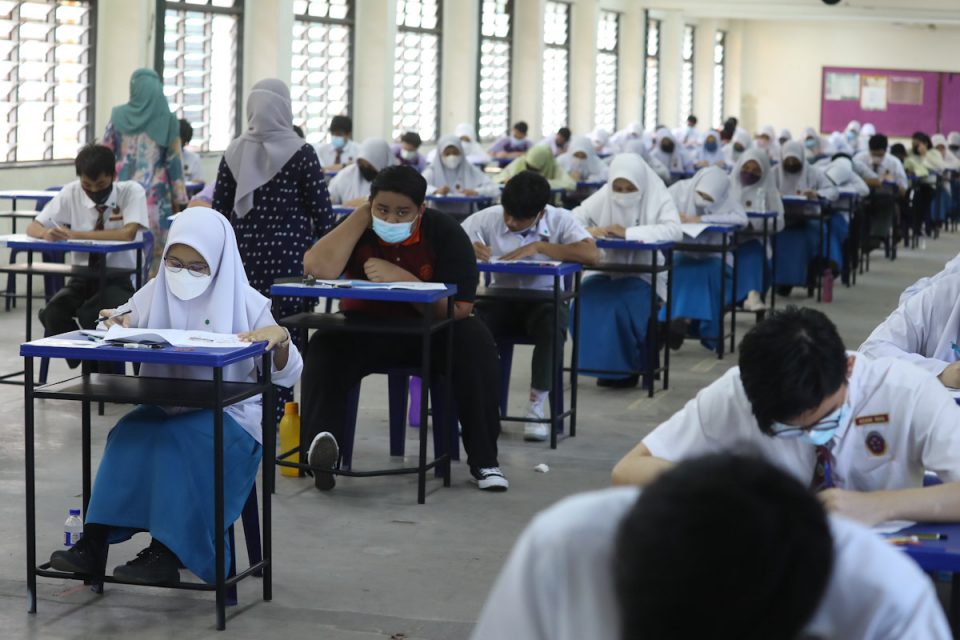KUALA LUMPUR, Aug 10 — On July 27, 2023, the government launched the visionary Madani economic narrative, a roadmap to pave the way for sustainable growth.
As a first step towards realising the economic narrative, the government said that it is committed to eradicating hardcore poverty among Rahmah Cash Aid recipients with emphasis on their children’s education and raising the socio-economic wellbeing of the group.
This commitment is reflected in Prime Minister Datuk Seri Anwar Ibrahim’s announcement on Aug 5 that the government will introduce a type of school for children from poor families to ensure they are not left behind in their studies.
However, the special school initiative is not without its detractors. Some quarters including academicians have raised concerns over the rationale and mechanism for its implementation.
Recent survey findings on the social media platform showed that the majority of respondents gave their thumbs down to the proposal which is said to be not in line with the government’s aspiration of integrating education in the multi-racial society irrespective of backgrounds.
Besides that, it is also seen as the start of the creation of social stratification and that some quarters felt that the government should focus on initiatives to improve and upgrade existing dilapidated schools.
Experts interviewed by Bernama are of the view that an indepth study should be undertaken before realising the implementation of the special schools.
Education Minister Fadhlina Sidek has earlier said that the ministry will make every effort to realise the establishment of special schools for students from hardcore poor families next year.
IS THERE A NEED?
Among others, education expert Dr Anuar Ahmad raised concerns over the government’s funding capability in providing the special schools given that there are roughly thousands of poor students in the country.
“While I fully support the government’s aspiration to help the poor, there are several issues that should be looked into including the government’s ability to provide the funds.
“How many of such schools can the government build as the number of poor students has reached thousands,” he told Bernama, citing the education ministry was only able to build seven new schools under the 2023 Budget.
Anuar, who is Universiti Kebangsaan Malaysia Centre of Education and Diversity senior lecturer, said there is no necessity for the special school but instead, the government should focus on empowering the daily boarding schools to address the dropout issue among poor students.
According to him, the daily boarding school had its beginnings in 1976 with the number increasing to 1,494 to date, which shows that poor students are given education opportunities up to the secondary school level and are able to sit for the Sijil Pelajaran Malaysia examination.
As such, he saw the need for the unity government to provide regular secondary schools with daily boarding facilities particularly in town areas with a large number of urban poor students.
“The original objective of the daily boarding school’s establishment was based on the Murad Dropout Report 1972 to address the issue of dropouts among poor students living in remote areas.
“Empowering daily boarding schools is more practical and cost-saving rather than building new schools specifically for poor students. For example, if daily boarding schools can accommodate 50 students, we can automatically assist about 750,000 pupils from the poorest families.”
However, he said the government should identify student groups with the highest incidence rate of dropouts by focusing on providing further education opportunities for them.
According to the Education Ministry data in 2021, the majority of dropouts are secondary school students especially those aged between 15 and 17 years old.
PSYCHOLOGICAL IMPACT
Dean of Faculty of Education, Universiti Malaya Prof Dr Zawawi Ismail also expressed concern over the psychological impact from the setting up of these schools as they could widen the gap between the poor and other income groups.
He opined that with the establishment of the special schools, poor students would be constrained from interacting with other levels of society, hence creating a perception that could be unfair for them.
“While the government’s effort to introduce the special schools for poor students is laudable, it can also have a psychological impact, building the self-confidence, competitiveness, of the students at school as they do not interact with others from different groups.
“Our concern is that this situation will widen the existing social gap, thus creating social problems and posing risks to the people,” said Zawawi, who also said that several issues should be given priority by the government to help children from poor families.
Among others, he said the government should continue providing aid in the form of school supplies and pocket money to poor students, resuming the Supplementary Food Programme to help improve the nutritional level of pupils as well as considering other assistance to enhance the quality of learning among this group.
At the same time, he also saw the need to improve the school facilities and infrastructure especially in the rural areas, as well as the importance of empowering the government’s policy in giving priority to poor children such as increasing the quota at institutions of higher learning and the Technical and Vocational Education and Training (TVET).
—Bernama





